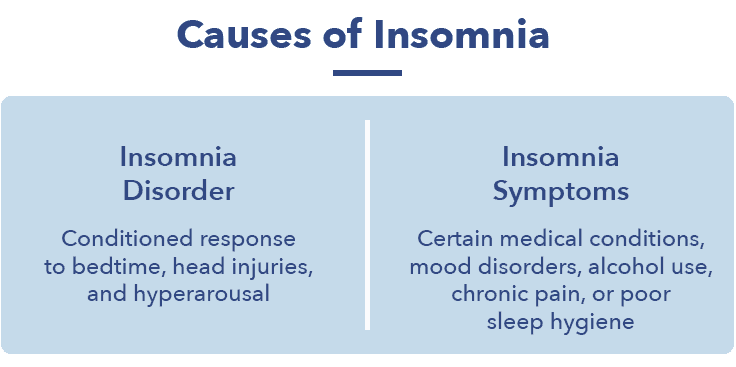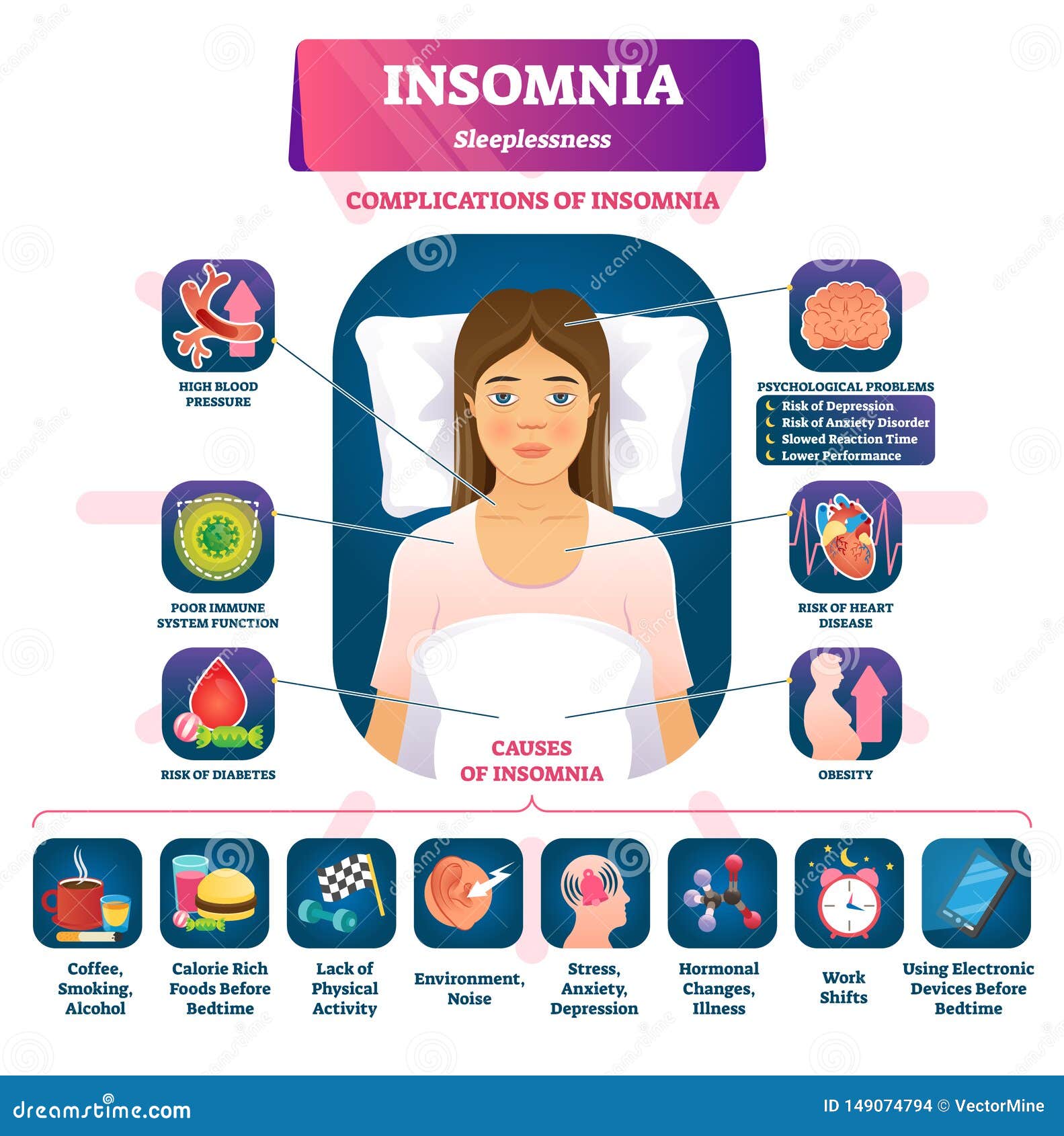
We list these insomnia types in detail below. There are two types of insomnia, acute and chronic. Insomnia symptoms include daytime fatigue, irritability, depression, impaired memory, and difficulty concentrating. Signs of insomnia include difficulty falling asleep, waking up in the middle of the night, trouble falling back asleep, and waking up too early. Chronic insomnia is when a person experiences this disorder for a longer period.Ĭhronic insomnia usually occurs at least three times a week and will continue for three months or longer. Stress is a common cause of short-term insomnia. Acute insomnia is a short-term condition where the individual has trouble sleeping for a few days or weeks.

Insomnia can be caused by different factors, such as stress, lifestyle habits, irregular sleep schedules, mental health issues, pain, illness, medications, neurological problems, and other sleep disorders. Insomnia is one of the most common sleep disorders, affecting as many as 70 million American adults each year, according to Cleveland Clinic. The types of medications most often used to treat insomnia include benzodiazepines and benzodiazepine-like medications, which include brand-name drugs such as Ambien, Lunesta, Sonata and Restoril.Insomnia is a sleep disorder in which an individual has trouble falling or staying asleep, resulting in poor sleep quality and duration. Sedating medications are another option, but because of risks that include physiological dependency, most are not approved by the Food and Drug Administration for long-term use.
#Insomnia causes full#
After a few days, bedtime is moved back until it allows for a full eight hours of sleep. This strategy can make the person tired enough to sleep through the whole night, without a chance to wake up in the middle. For the first few nights, the person may go to bed while giving him or herself fewer hours of sleep – say, six or seven – than actually needed. The therapy involves planning and tracking a person’s sleep, and it often begins with intentional sleep restriction. The patient will wait an hour or more before going to sleep rather than doing so when he or she first feels tired (while avoiding naps during the day). Our natural sleep patterns change as we age, so we don’t get as much deep sleep, and it’s harder to stay asleep all night.Ĭognitive behavioral therapy (CBT) is one of the best treatments for insomnia and can lead to improved sleep without the use of medication. Insomnia seems to be more common as people get older. Everything from the room’s temperature to noise and light levels can contribute to sleeplessness. The place in which a person sleeps can affect sleep quality. From daily stressors to major emotional traumas such as the death of a loved one or the loss of a job, stress can affect a regular night’s sleep.

Even regular, everyday stress can negatively affect a person’s sleeping patterns.

Mental health issues, including anxiety, depression and post-traumatic stress disorder, can undermine a person’s ability to sleep.

All sorts of physical pain, from backaches to pain associated with conditions such as cancer, can disrupt a person’s sleep. Those causes can include physical, mental and environmental factors, and lead to what’s called secondary insomnia. It’s a question of how much time you spend trying to figure it out, and how open the person is to thinking about what’s causing it.” “In my experience, there’s usually something. “There are some people who don’t sleep well, and it’s hard to understand what could be causing that,” Dr. When there isn’t an underlying cause, doctors refer to the condition as primary insomnia.


 0 kommentar(er)
0 kommentar(er)
